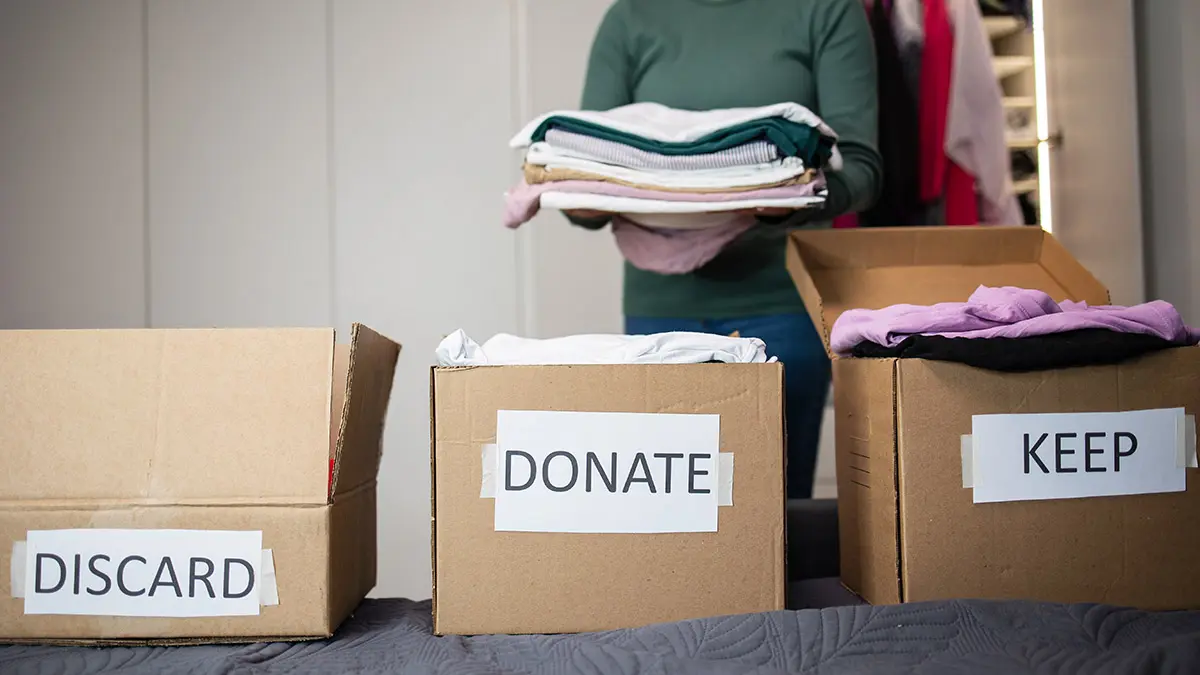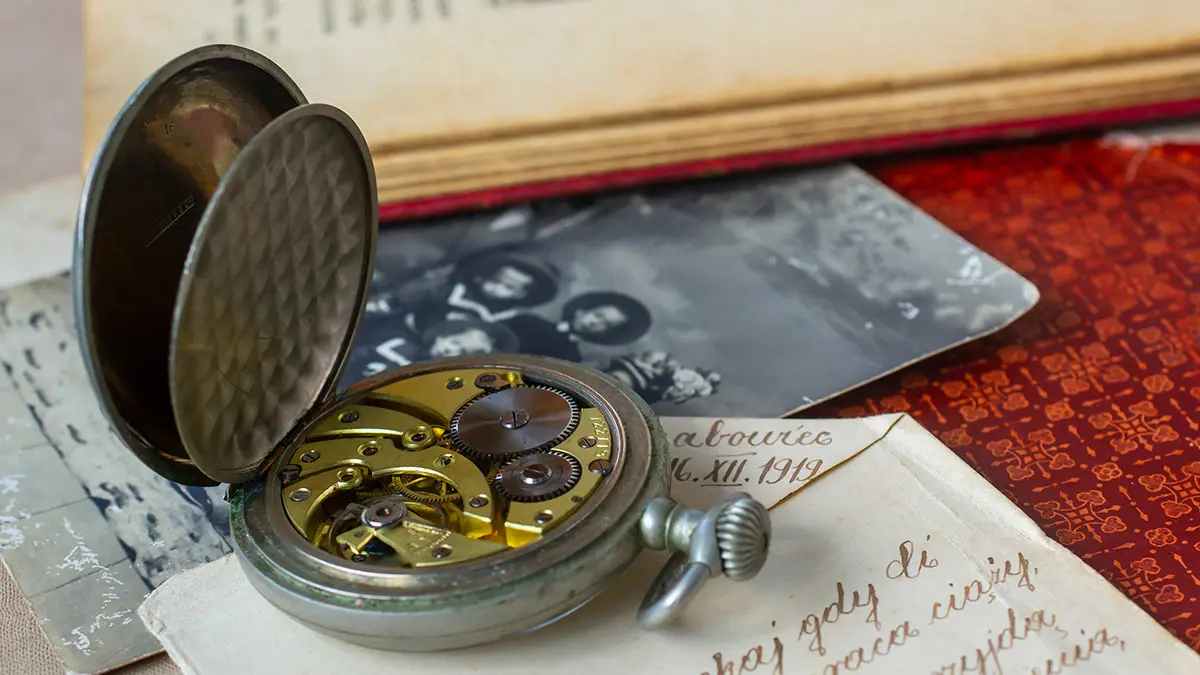Deciding what to keep (or sell, donate, or even just throw away) after a loss can be hard. When we are grieving, a mere “object” can carry so much emotional charge that even considering starting the process can feel overwhelming.
In a recent “Light After Loss” episode, Modern Loss’ Rebecca Soffer spoke with Shira Gill, a globally recognized home organizing expert and author of “Minimalista” and “Organized Living.” Gill has taught thousands of people how to declutter their homes and lives, and developed a process and toolkit that applies to anyone, regardless of budget, space, or lifestyle. She is also intimately familiar with the experience of going through a loved one’s belongings.
Here are six of her best tips that might help as you consider starting your own “edit,” or helping someone through theirs.
1. Check in with yourself
It’s important, first and foremost, to respect your own process. After all, it can take years for someone to feel ready to sort through certain items, such as personal letters or photos. Unless you are under a short deadline to go through everything at once (and if you are, please consider putting everything into storage boxes for the time being), do ongoing check-ins with yourself to see how you feel about starting this type of project. You can sense when you feel ready. Trust your gut.
Some questions to ask yourself:
- How does it feel to consider beginning the process?
- Would it be cathartic to make some decisions on what to do with things, or does the thought of it fill me with dread and anxiety?
- Do I only feel comfortable when I imagine going through things that don’t seem as personal as others?
- Am I at the point where I feel like my life is being overtaken by someone else’s stuff? Do I feel less anxious when I imagine some items being removed from my daily surroundings?

2. Seek out support through friends and extended community
When there is a loss, most people around the griever want to help but don’t know how. Many are happy to receive an assigned role or invitation to be helpful in a specific way.
Many people feel shame around asking for help. But the intrinsic motivation to do something hard and emotionally grueling doesn’t come easily to most of us. This is one of those life experiences when the presence of another can be an integral salve — not just in helping you feel less alone but in helping you make some good decisions and even in keeping you on task.
Consider inviting someone from your family or a group of friends, or even a colleague who you trust to have no judgment to take on bite-sized pieces of the process with you — even if just to sit with you for a couple of hours while you go through a box or two. The person will feel like they’ve been a useful part of a very hard experience, and you won’t easily forget their support either.
3. Physical boundaries are your friend
In a process that has no real rules, knowing that you have certain boundaries that will keep you anchored can be liberating and grounding. When it comes to thinking through what items you can physically keep in your own home, consider purchasing a set number of airtight bins that will comfortably fit in your storage area. Creating limits may help you make some difficult choices more easily.
4. Categorize, categorize, categorize

Try to make a delineation between “stuff” and true memorabilia. Perhaps your dad’s coffee mug carries no emotional weight, but his marked-up trail map or photos from the Peace Corps do. Look at the items you want to go through and decide which ones are mere “things” and which are unique to your person. Set aside a premium pile of things to either keep or give to family members or friends, and another that might be able to do some good for someone you don’t even know. You don’t have to make a final decision right away (and you might even end up switching some items as time goes by), but categorizing as you go can help things become more clear.
5. Pace yourself
Unless you have to go through belongings in a short period of time, allow yourself to work in small increments. Taking the pressure off when decision-making stakes feel high is so important. Pace yourself and go step by step to keep up your energy and stay focused.
You may find it easier to sort by category one at a time — say, books, music, clothing, or appliances — so you can assess each category and select the most meaningful and precious items from each group. And remember, there’s nothing wrong with shoving everything into a bunch of boxes and putting them in storage until you are ready to sit and process.
6. Give things to those who will appreciate them
Chances are you won’t be able to — or even want to — hold onto everything left behind. You can also be sure that other people in your life would emotionally benefit from being able to receive some of those things. Make a list of everyone connected to your person who might have an interest in having something, and then let them choose what they want in a structured way.
One option is to take photos of everything you are willing to part with, and send a blanket email to your inner circle asking people to tell you what they’d want and offering to ship it to them. Another is to set a time to invite people to visit your home and look at everything using a sticker system as a visual code to “claim” things they really care about (ie, “red” means someone really wants an item, “yellow” is a nice to have). If you’re lucky, you won’t have any conflict over any items (and if you do, make it clear that you reserve the right to hold onto them until you make a final decision…remember the part about pacing yourself?) Then, donate whatever is left over.
This article was authored by ModernLoss.com, which offers candid conversation about grief and meaningful community throughout the long arc of loss.






